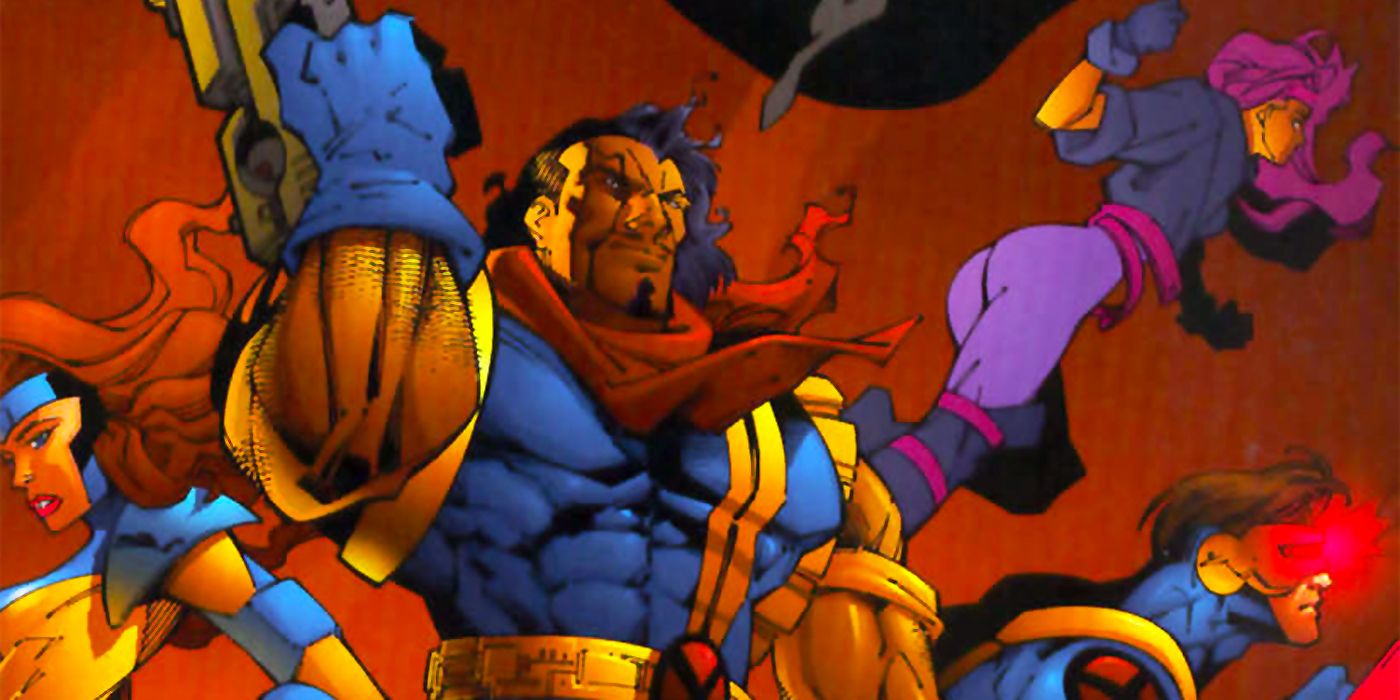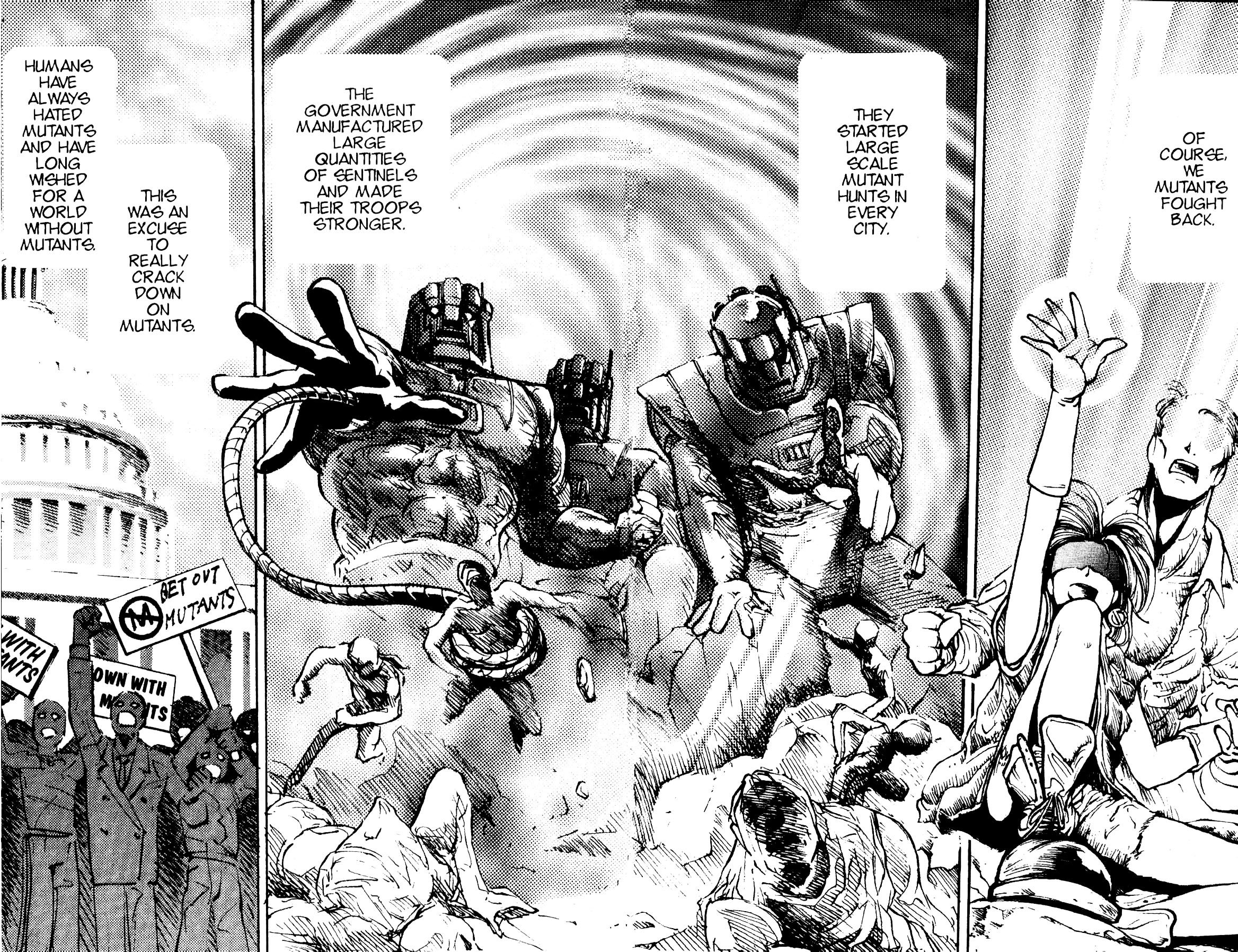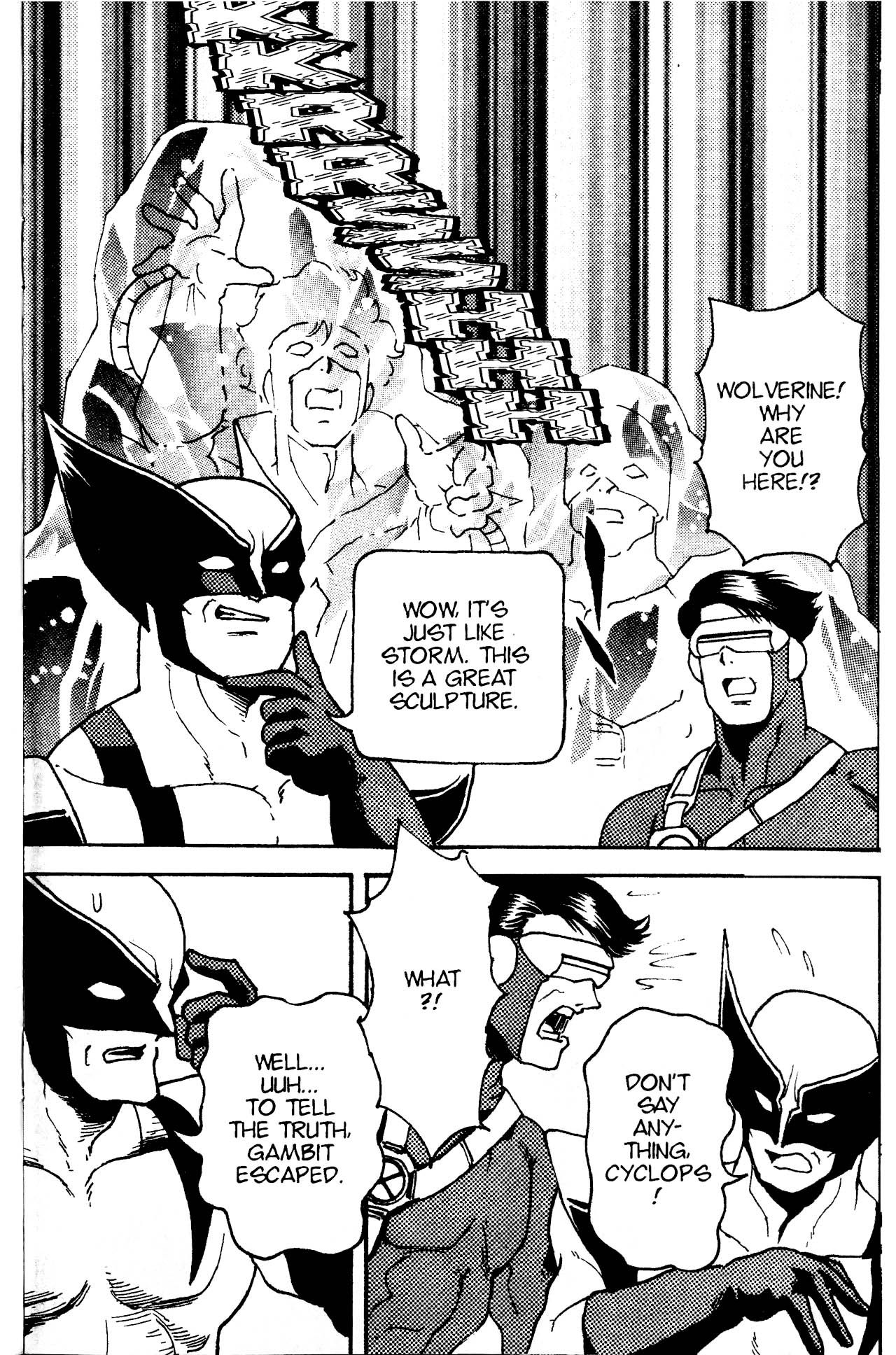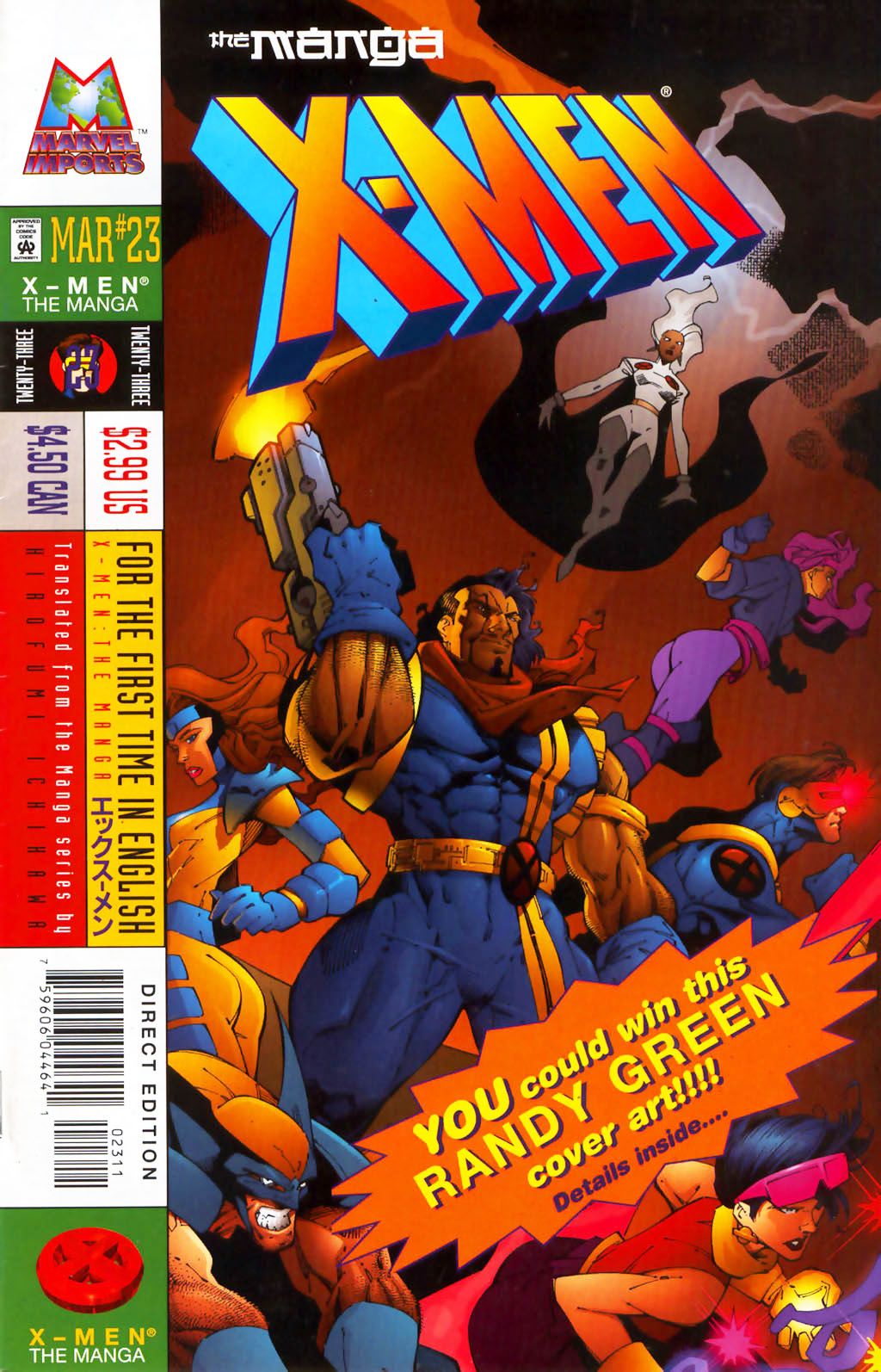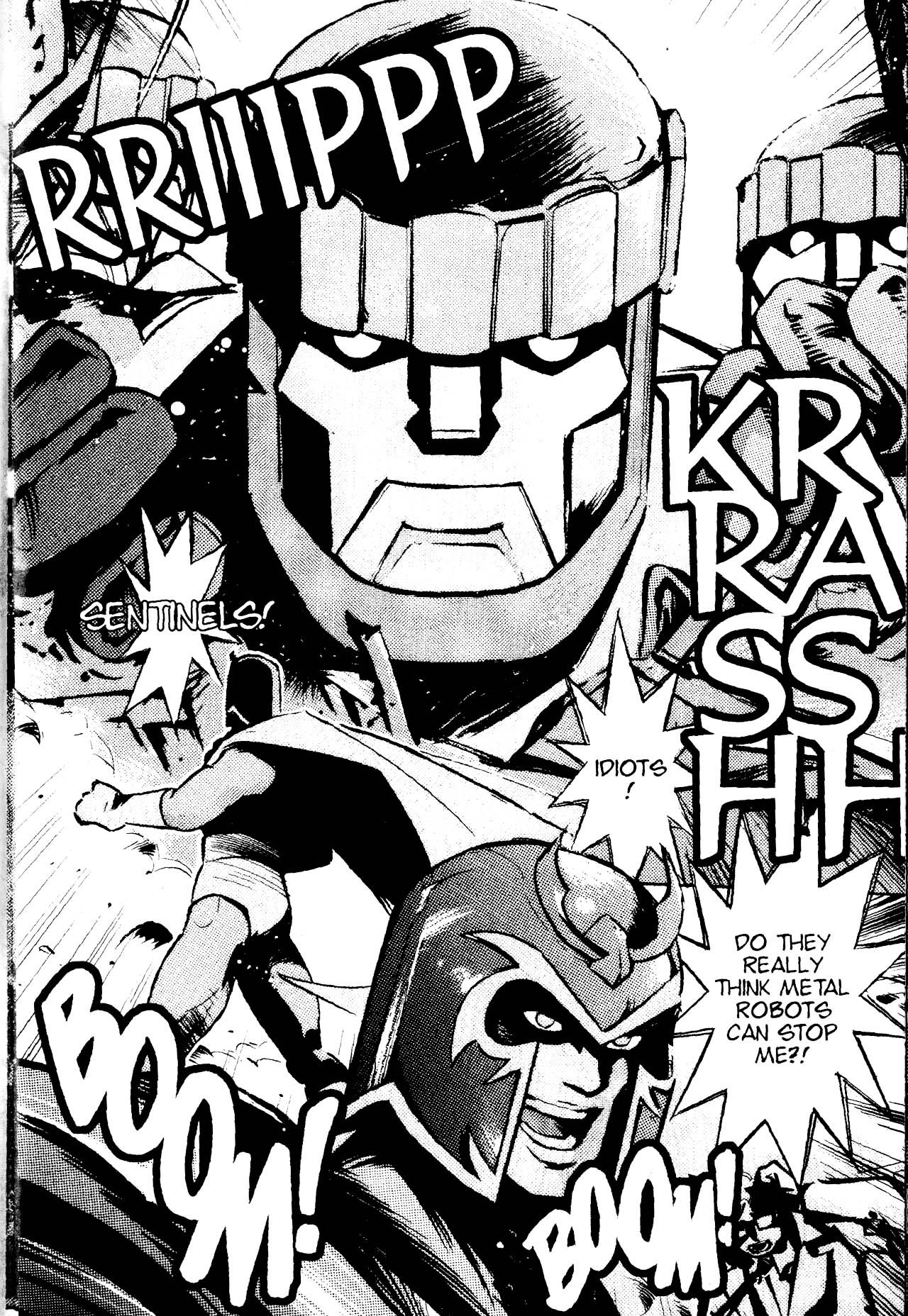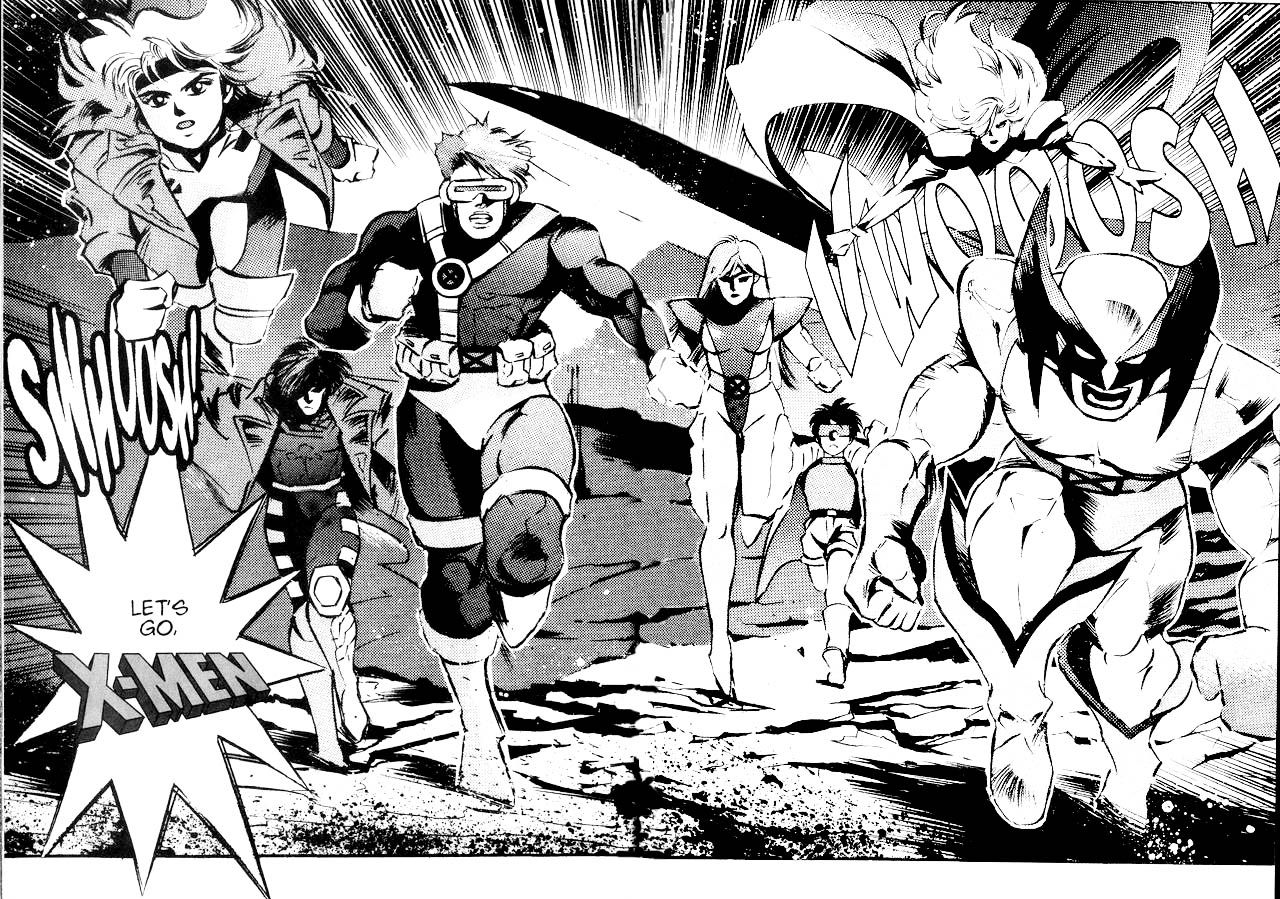Welcome to Adventure(s) Time's 148th installment, a look at animated heroes of the past. This week, the finale of X-Men: The Animated Series' first season -- and the abrupt cancellation of its manga adaptation. If you have any suggestions for the future, let me hear them. Just contact me on Twitter.
The concluding three episodes of X-Men Season 1 are rightly remembered as some of the series' best. The producers have noted they had no idea whether the show would be renewed, so the episodes were crafted to work as a possible finale. The result is a frenetic collection of episodes that get to the heart of the show's core themes, while also providing memorable visuals and character moments.
X-Men: The Manga Was an Adaptation... of an Adaptation
The 11th and 12th episodes are the animated adaptation of "Days of Future Past," a seminal two-part 1981 X-Men comics storyline by Chris Claremont and John Byrne about a political assassination that has disastrous effects for mutants in the future. The episodes, written by Julia Lewald and Robert Skir & Marty Isenberg, follow the basic plot of the comics, while also weaving in the then-hot character Bishop. In the show's canon, Bishop is a mutant hunter in the future who's targeted for elimination by the Sentinels after he outlives his usefulness.
X-Men: The Manga, Marvel's late-1990s reprint of the Bamboo Comics adaptation for Japanese audiences, starts its retelling of "Days of Future Past" with Issue 21. (Yes, it's an American reprint of a Japanese manga that adapted a cartoon adaptation of an American comic book storyline.) The manga is credited to Hirofumi Ichikawa, with a translation from Mutsumi Masuda and retouching by Dano Ink Studios for the American reprints. Previous issues usually featured straightforward adaptations of cartoon episodes, with perhaps the occasional translation hiccup. The art is often fantastic, but many readers were baffled by the manga version of Juggernaut's Season 1 episode, which veered into Mad Magazine cartooniness.
The cartooning is toned down a bit for "Days of Future Past," but is still looser and not nearly as heavily rendered as the manga's earlier issues. While the human figures have a softer quality, the Sentinels and their time-traveling enforcer Nimrod look great. The animation was heavily influenced by Byrne's original work in the comics, so seeing a manga interpretation of a Western comic is pretty interesting.
X-Men: The Manga Had Its Share of Translation Issues
The English translation also stands out when compared to previous issues, perhaps because the editorial duties were handled by Dan Nakrosis, who ran a studio that specialized in translating manga for Western audiences, before being passed on to Marvel for publication. For one thing, the characters keep shouting "Damn!" or "Damn it!" in these issues, something they couldn't have said on either Saturday morning or in most mainstream Marvel comics of the era.
The scripts were translated from English to Japanese and then back to English, which is more evident in these issues than ever before. On X-Men: The Animated Series, Bishop is adamant about taking Wolverine's place on the time-travel mission because Logan is too old for the job. In the manga, Bishop instead states he should because he "doesn't care" for any of the X-Men and, therefore, won't hesitate to kill the assassin, believed to be Gambit.
And while American comics fans had to notice the Punisher's cameo on the "Assassin" video game cartridge that jogs Bishop's memory, he's replaced by a generic action hero in the manga. Marvel characters that didn't have specific permission to appear on the show were often referred to obliquely in the scripts, so it's possible Punisher was "action hero man" and the person translating this script didn't realize who this character was meant to be.
Other issues include a hint about Jean's warning that everyone has a "dark side" translated as "You can't be sure of that. Even I sometimes get angry with humans…" (This was, of course, meant as an allusion to Jean's transformation into Dark Phoenix.) Even more awkward is Mystique referring to her employer as "Mr. Apocalypse," and characters continually shouting the names of their powers. "Plasma bolt!" "Optic blast!"
Some moments are reinterpreted with entirely different moods. When Wolverine reveals he inadvertently allowed accused assassin Gambit to escape his impromptu imprisonment, the scene is played as a sitcom joke.
X-Men: The Manga's Finale Was Intense But Unsatisfying
While it's understandable that a manga reprint of a cartoon adaptation wasn't a huge priority for Marvel at the time, there are still some shocking blunders in these closing issues. Rather than again recycling interior art for the cover, Issue 23 has a new Randy Green cover (and, unfortunately, Rogue miscolored as Psylocke).
Marvel ran a contest for fans to win Green's original cover art, but apparently, they were so proud of that contest they ran the same cover on the very next issue, only cropped to focus on Jean Grey, Bishop and Wolverine.
The final pages of Issue 25 begin the manga adaptation of Season 1's finale, "The Final Decision," from writer Mark Edward Edens. Hirofumi Ichikawa is still credited as the manga's artist, but there's an abrupt shift in art style, with more detailed, more realistic faces and heavily rendered backgrounds.
"The Final Decision" is possibly X-Men: The Animated Series' finest episode, paying off numerous plot threads and culminating in the unlikely team-up of the X-Men and Magneto against a batch of Sentinels that now refuse to obey human orders. The premise could easily serve as the basis for an X-Men movie, and the animators didn't restrain themselves for the finale. Sentinels fly toward the viewer in forced perspective. Wolverine faces more Sentinels in a mine shaft, the scene only illuminated by the well-timed shots of their eye-blasts. Magneto is rendered bloody and bruised after a Sentinel attack. The series had yet to reach this level of intensity.
X-Men: The Manga goes into its 26th and final issue with a real shot at doing this story justice. The grittier art style fits the episode's mood, and its adaptation of Magneto's near-death experience feels appropriately dramatic. Some of the translation hiccups are still happening, however, like Magneto's classic line as he watches the X-Men fly off on a hopeless mission -- "Noble fools… the brave are always the first to die" -- comes out as "Fools… however, I admire their bravery." That doesn't exactly carry the same gravitas.
Readers expecting a rousing portrayal of that final battle, and Magneto's subsequent decision to join the X-Men in this hopeless fight, Senator Kelly's realization of his own prejudices, Beast's well-earned presidential pardon, and Cyclops' proposal to Jean won't find them in X-Men: The Manga. The final issue ends on a double-page spread of the X-Men charging into battle to stop the Sentinels from killing Senator Kelly, which chops off the second half of the episode. Readers are left on a cliffhanger, and there's no text piece indicating what is going on.
The truth is that the Marvel of 1999 was only emerging from bankruptcy, causing the company to sometimes cut comic runs short. Even though more material remained, it's clear Marvel didn't feel X-Men: The Manga was worth its publishing resources. It's also irritating to discover that the second season of the show also received a manga adaptation, so there was plenty more for X-Men: The Manga to reprint. (The covers for the original Japanese run, are archived on this Fandom page.)
It's a shame there wasn't a double-sized finale issue to close the story out and give Western readers access to a proper adaptation of a landmark episode. There might be perfectly reasonable behind-the-scenes explanations for why X-Men: The Manga ended abruptly, but from a reader's perspective, it's a sad way for a book to take its final bow.

